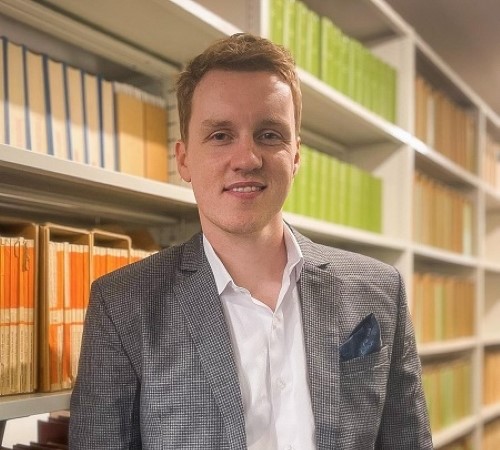Research Fellowships 2024
Dr Connor Taylor’s Royal Academy of Engineering Research Fellowship will support innovative research that will lead to significant improvements in bioactive molecule identification. His work at the University of Nottingham uses high-throughput experimentation (HTE), automation, and machine learning by introducing machine-guided molecular growth (MG2). This strategy utilises microscale plates to efficiently run hundreds of reactions simultaneously, while only consuming minimal amounts of reaction material (microgram scale). The products from these are then screened against a biological target to measure bioactivity. The most promising products are identified, and machine learning algorithms then determine the best molecular growth directions to further exploit biological activity. The products of interest from the previous reactions are purified and dosed with further reagents, as instructed by synthetic planning tools, ready for the next round of reactions and refinement.
Through engineering and fine-tuning this workflow the work creates an automated feedback loop that develops starting materials with little-to-no biological activity into powerful drug-like molecules. This methodology can accelerate bioactive molecule identification and significantly reduce costs, enabling autonomous drug-candidate discovery for many diseases, including rare diseases that are currently economically unfeasible to research.

Related content
View all programmesSupport for research
The Academy runs a number of grants to support excellent researchers carry out engineering activities and to enable clo…
Research Fellowships
The Academy offers Research Fellowships each year to outstanding early-career researchers to support them to become fut…
